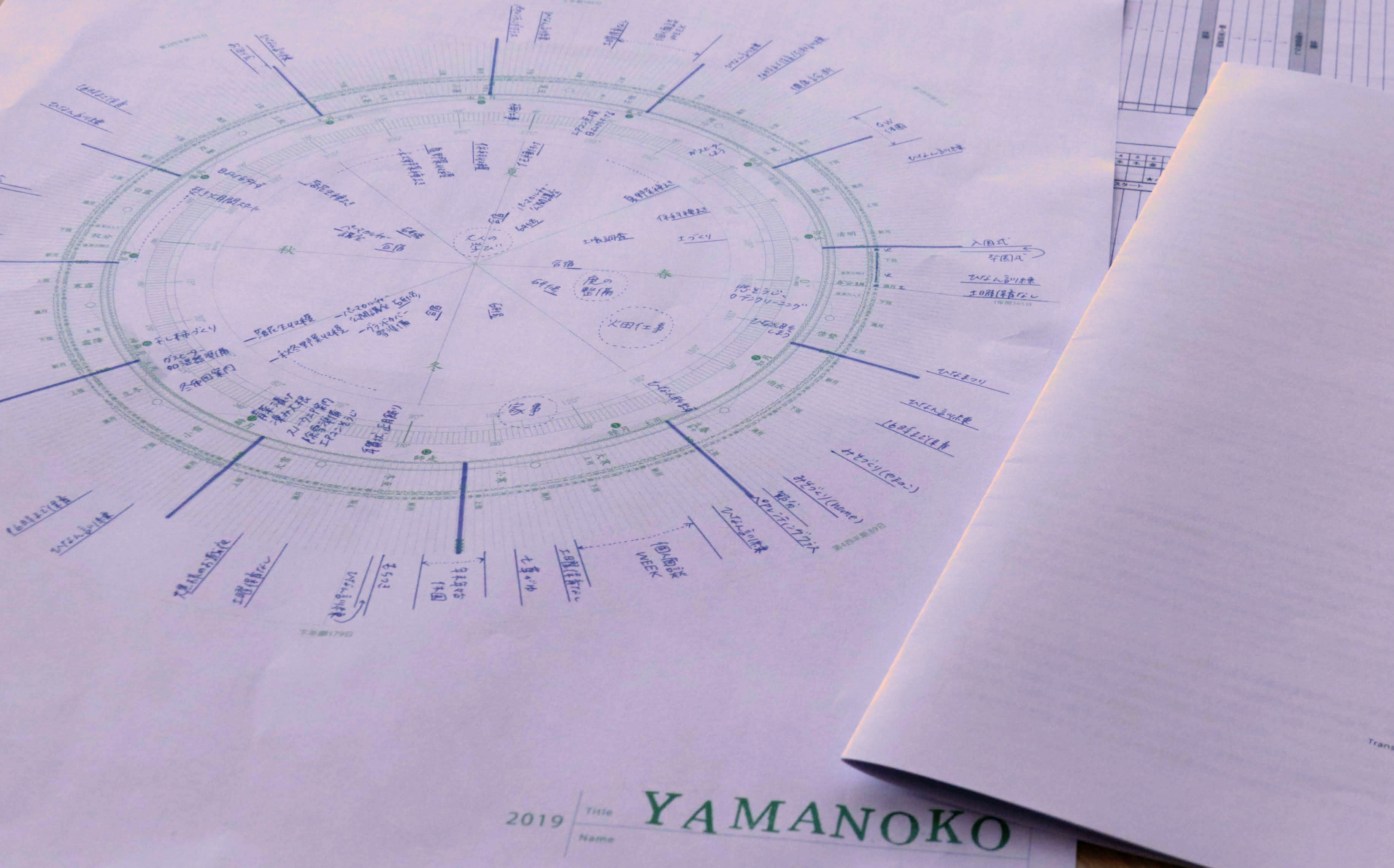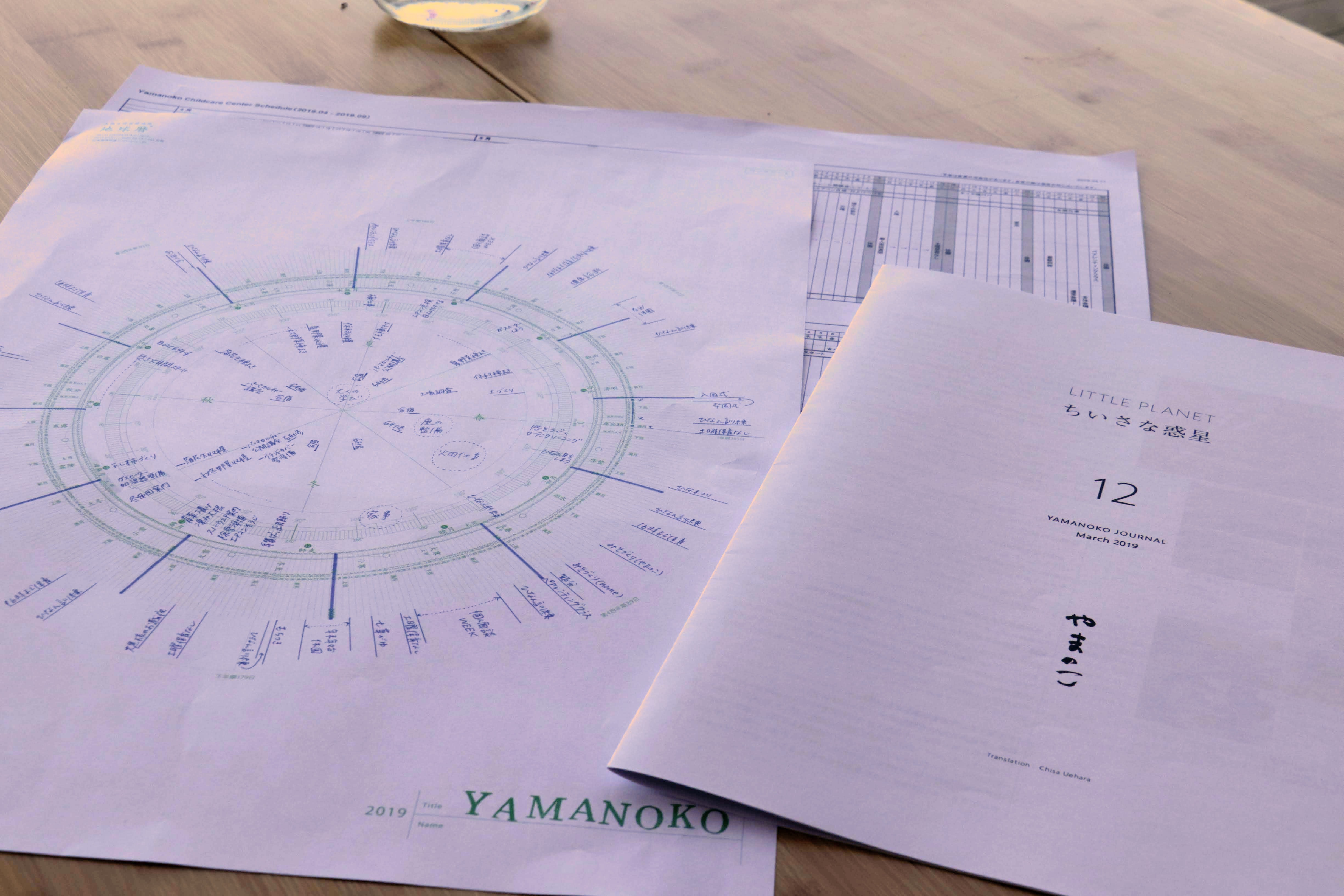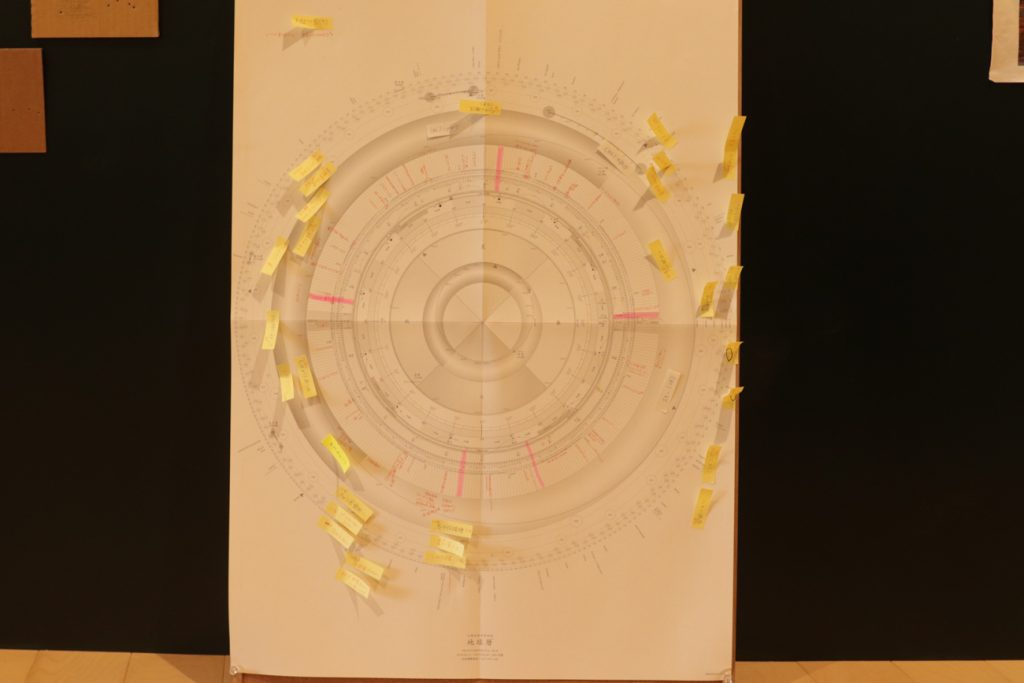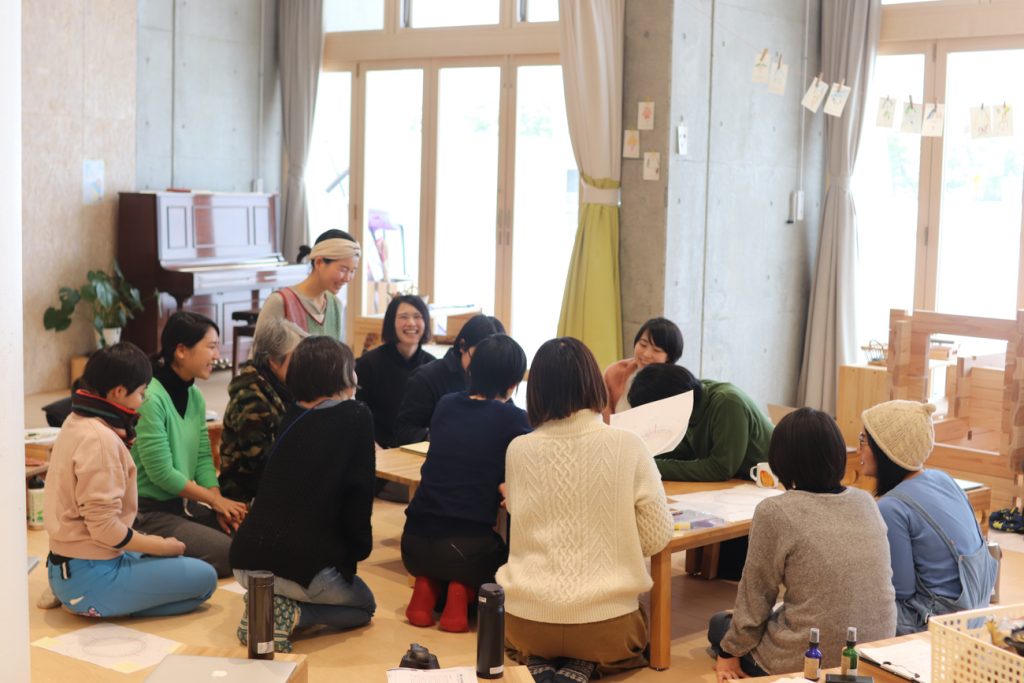
2019.03.05 Yamanoko yearly plan
Text : Aya Endo
Is anybody familiar with a type of calendar called “chikyu-reki (earth calendar)”?
Invented by Kaichi Sugiyama, earth calendar lets us capture time on a global scale.
Starting from vernal equinox day, we call it the end of the year when the circle completes.
In order to decide Yamanoko yearly plans, we first wanted to grasp what kind of “time” should pass by at our nursery. Our conclusion was the kind in which enables us to feel the power of nature -shifting seasons and circles of life -unlike the usual cases of adults.

We thought that such sense of time would be especially vital for the period of early childhood, when the primary formation of identity takes place. While we were having this discussion, one of our staff mentioned that she uses “earth calendar” at home, and it might be perfect for us to use it too. As a result, we used two days in total (2/2
Saturday, and 2/28 Thursday) to hold a workshop style meeting to plan the yearly schedule of 2019 using earth calendar.
1. Learnings by adults -learning opportunities for teachers
2. Housework -supporting daily lives e.g. clean-ups, laundry etc.
3. Garden -creating a garden that develops with children
4. Events -e.g. birthday ceremonies, seasonal events, camping at nursery etc.
By letting all the four above overlap with each other, we believe we can convey children’s daily lives of the year at Yamanoko.

What we also believe is that good curriculum means nothing by itself. It comes alive with the fusion of the two: a sense of respect for learning continuously by adults, and healthy environment that maintains it. Therefore, we arranged “1. Learnings by adults”
as the primary formation of Yamanoko’s basic quality. This includes events such as parenting class and childcare visit for parents, in addition to staff training for teachers.
Secondly, there is “2. Housework”, which plays the main role to compose Yamanoko style childcare, and thirdly “3. Garden”, which we all need to put our big energy into. Lastly there is “4. Events” as opportunities to learn for children. Events require preparation by adults, and brings special excitement to children, which overall becomes the source of energy in nursery. We believe balance is vital-to both make sure that all this energy leads to the next steps, and to not bring distraction but maintain peace in daily lives.
So what happened while we proceed our discussion was -we had to deal with our overflowing emotions towards our precious children and eventually, came up with SO
much. Camping at nursery, hiking, outdoor activities with bento…
The case was the same when we discussed“3. Garden”, we have so many things we want to do together -improving the state of soil, installing rainwater tanks, keeping chickens and hens…
But then we start to question; isn’t this too much of a burden overall, considering the state of the whole team? But don’t we all want to bring energy into our precious moments with children…moments that can never be repeated? The conflict was real.
To clear our minds, we jotted down what we want to do in post-its, and pasted them onto the earth calendar. This helped us realise the difference in volume of tasks depending on the season. In the end we managed to bring everything together.
Through trial and error, we will strive to look for an appropriate method to create a space where the various projects that are deeply woven to the seasons can be practiced harmoniously.














 PREV
PREV